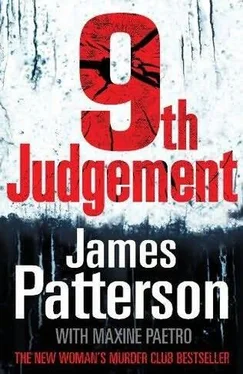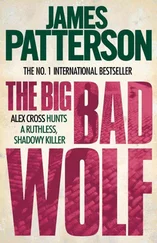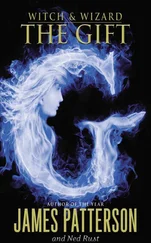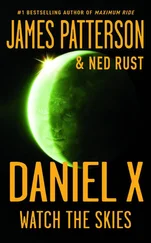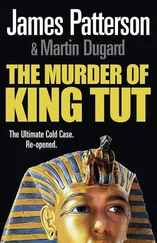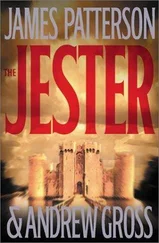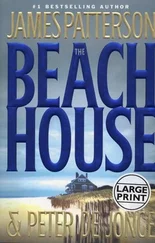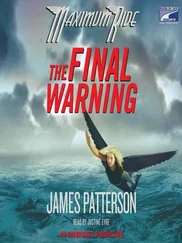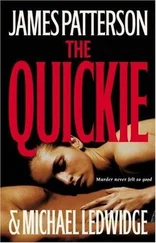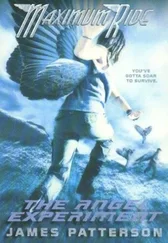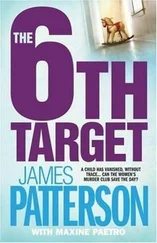“Just take it easy on yourself, okay, Linds?”
“I’m trying.”
Conklin got up from his seat, came over to my side of our abutting desks, and sat in the chair Cindy had just vacated.
“Are you sure about Joe?” he asked me.
I was mesmerized for half a second. Conklin’s good looks have that effect on me, and there’s also something about the way he smells. Whatever the heck soap he uses.
“I’m sure,” I said, looking away.
“He’s the one?”
I nodded and said, “He’s the one.”
I felt Conklin’s lips on my cheek, right there in the squad room, a decidedly unpartnerlike gesture, but I didn’t care if anyone saw it.
“Okay, then,” he said.
He went back to his chair and put his feet on the desk.
“If Hello Kitty’s a female, what changes? Why would she shoot Casey Dowling?”
IT WAS THEIR lunch break, and Sarah had left the building first. Now Heidi entered the diner and saw Sarah at a booth near the window.
Heidi broke into a smile, waved, and slid across the red leatherette banquette so she could sit next to Sarah and hold her hand. She kissed Sarah quickly, then looked over her shoulder, making sure there were no other teachers around.
“Happy birthday, darling,” Sarah said. “You’re a flirty thirty.”
Heidi laughed. “I don’t feel any different than when I was twenty-nine. I thought I would.”
Menus were brought to the table and hot open-faced turkey sandwiches were eaten quickly because the lunch break was short and there was a lot on their minds. Heidi blurted, “If we could be together for real, without being afraid of getting fired, or of Terror or Beastly going ballistic, do you think we’d feel differently about each other?”
“You mean, would we care less about each other if we felt safe?”
“Yeah.”
“No. I think it would be better. Will be better. That’s a promise. Look, Heidi-”
Three waitresses came out of the kitchen, the one in front holding the cake, cupping her hand in front of the thirty small pink candles. The waitresses clustered at the head of the table and sang, “Happy birthday, dear Heidi. Happy birthday to you.”
Applause sounded up and down the length of the narrow diner, and Heidi looked at Sarah, squeezed her hand, and then blew out the candles, every one of them on the first try.
“Don’t tell me what you wished for,” Sarah said.
“I don’t have to. You know.”
The two hugged, Sarah’s heartbeats picking up speed as she thought about the gift in the pocket of her jeans.
“I have something for my birthday girl,” Sarah said. She dug into her pocket and came out with a packet so small only something really good could be inside. Heidi exchanged a mischievous glance with Sarah, peeled away the silver wrapping paper, and held the small leather box shaped like a round-topped trunk.
“I can’t guess what this is,” she said.
“Don’t guess.”
Holding the box in both hands, Heidi pried up the lid, then took out the chain and the pendant, a brilliant yellow, very faceted stone. Heidi gasped and flung her arms around Sarah’s neck, asking her to please help her put it on.
Sarah beamed, moved Heidi’s soft red hair off the nape of her neck, and connected the clasp. The bead guy at Fisherman’s Wharf had done a wonderful job of fitting the stone into the new setting, not asking questions or even looking at her as he took the twenty dollars for the work.
“I love this. It’s the most beautiful gift, Sarah. What kind of stone is it?”
“It’s a citrine, but I think of it as a promise stone.”
Heidi looked into Sarah’s eyes and nodded.
Sarah touched the gem hanging sweetly from Heidi’s neck and told herself that she would do the last job on her list, that she would hook up with a fence, that she would get Heidi and Sherry and Steven out of San Francisco, that somehow she and Heidi and the kids would stop being afraid every single day of their lives.
THE REPLY TO the Lipstick Killer’s “ransom letter” ran in the Chronicle, and within hours, the planet slammed on the brakes and all eyes became fixed on San Francisco. Media of every type and stripe materialized in satellite vans and on foot, surrounding the Hall of Justice and the Chronicle Building, swamping Tyler ’s phone lines with requests for interviews and dogging cops and newspaper employees on the street. Every man, woman, and child with an opinion and a computer fired off letters to the editor.
Interviews were denied, and the mayor pleaded with the press to “let us do what we need to do. We’ll provide full disclosure after the fact.”
Rich Conklin, Cappy McNeil, and I were embedded at the Chronicle, charged with screening out the garbage from the real thing: a reply from the killer with instructions on how to deliver two million in blood money in exchange for leaving San Francisco alone.
It was a sickening lose-lose situation that could only turn in our favor if we trapped the murderer. We had a simple plan. Follow the money.
At 2:15 in the afternoon, the mail cart arrived on the executive floor, carrying a fat brown envelope addressed to H. Tyler. I put on latex gloves and said to the mailroom kid, “Who delivered this?”
“Hal, from Speedy Transit. I know him.”
“You signed for it?”
“About eight or ten minutes ago. I rushed it right up.”
“What’s your name?”
“Dave. Hopkins.”
I told Dave Hopkins to go down the hall and ask Inspector McNeil, the big man in the brown jacket, to interview Hal pronto. Then I called out to Conklin, who exited the cube across the hall and followed me to Tyler ’s doorway.
I said, “Henry, this could be it. Or it could be a letter bomb.”
Tyler asked, “Do you want to drop it in a toilet or open it?”
I looked at Conklin.
“I feel lucky,” he said.
I placed the packet in the center of Tyler ’s leather-topped desk. We all stared at the envelope with Tyler ’s name and the word “URGENT” in big black letters. Where the return address should be were three letters written in red: “WCF.”
We’d withheld the killer’s specific signature from the press, so there was little doubt in my mind that this packet was from him. Tyler picked up a letter opener, slit the envelope, and tilted it gingerly until the enclosed objects slid onto his desk.
Item one was a phone. It was a prepaid model, the size of a bar of hand soap, complete with neck straps, a headset with earbuds, a chin mic, and a built-in camera.
Item two was a standard envelope, white, addressed to “H. Tyler.” I opened it and shook out the folded sheet of white paper inside. The message was typed and printed out with an ink-jet. The note read: “ Tyler. Use this phone to call me.”
There was a number and the signature: “WCF.”
“CAN YOU TRACE a call on a prepaid phone?” Tyler asked.
I shook my head. “Not effectively. There’s no GPS device, so there’s no way to track the phone’s location, either.”
Tyler picked up the cell and dialed the number. I stooped beside him and put my ear next to his. There was ringing, and a man’s voice said, “ Tyler?”
“Yes, this is Henry Tyler. To whom am I speaking?”
“Do you have what I asked for?”
“I do,” said Tyler.
“Turn on the phone cam. Show me the money.”
Henry lifted a briefcase to his desk, opened the hasps, and pointed the phone at two million dollars in neat bundles. He snapped off a shot, then asked, “Did you receive the picture?”
“Yes. I asked you to choose a go-between.”
“I’ll be your contact,” Tyler said.
Читать дальше
